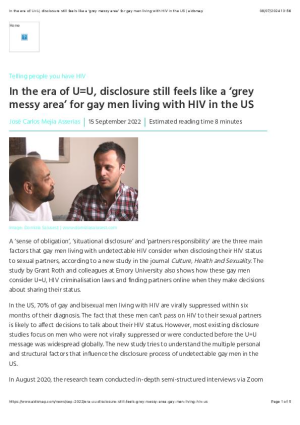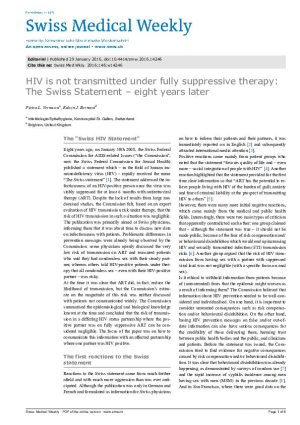Role of viral suppression in HIV treatment and prevention and its potential in addressing harmful laws and discrimination
This article documents key moments in research and WHO policies that have informed how ART is applied within HIV programs, including as a prevention tool with the potential to support efforts to address HIV-related discrimination. In 2023, WHO continues to clarify that there is zero risk of sexual HIV transmission when a person living with HIV has an undetectable viral load and an almost zero or negligible risk of sexual transmission when a person living with HIV has a viral load of ≤1000 copies/mL.
In the era of U=U, disclosure still feels like a ‘grey messy area’ for gay men living with HIV in the US
Summary of a study published in June 2022 on the Taylor & Francis Online website. The qualitative study was conducted in August 2020 with extensive interviews via Zoom with twenty HIV-positive gay men on treatment with undetectable viral loads. Participants were from all regions of the United States and ranged in age from 23 to 62.
HIV is not transmitted under fully suppressive therapy: The Swiss Statement – eight years later
Outlines the background to the Swiss Statement, reactions to the Swiss Statement, and the fact that subsequent research has not undermined its assertions. Includes observations about its legacy, including more honest communication between patients and clinicians, and the development of official guidelines recognising the effectiveness of ART.


